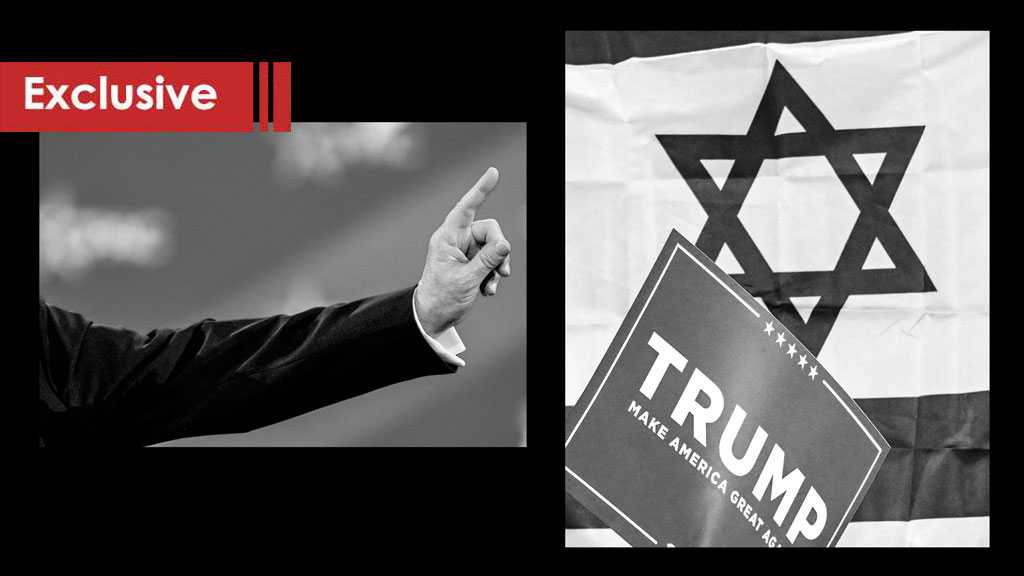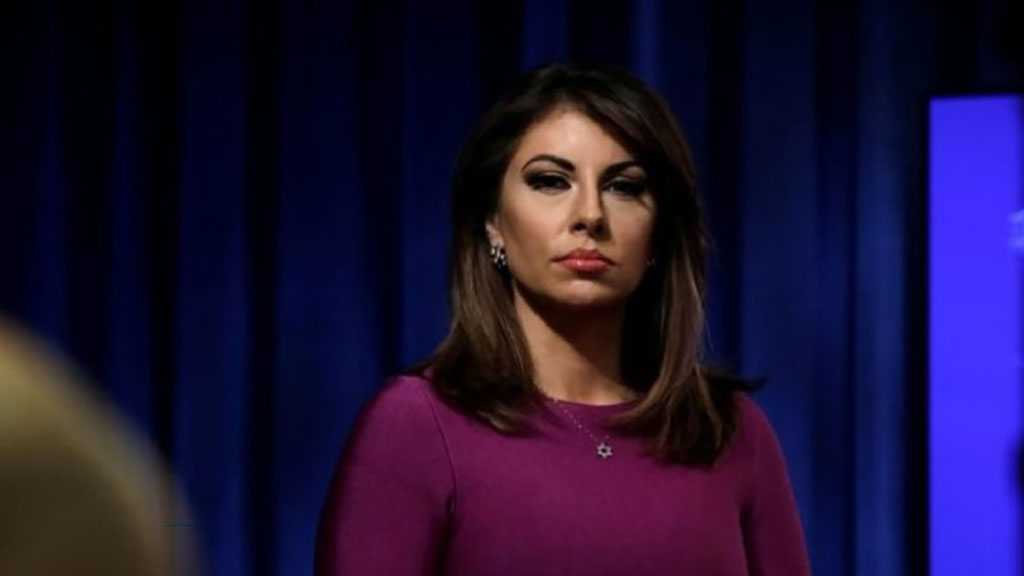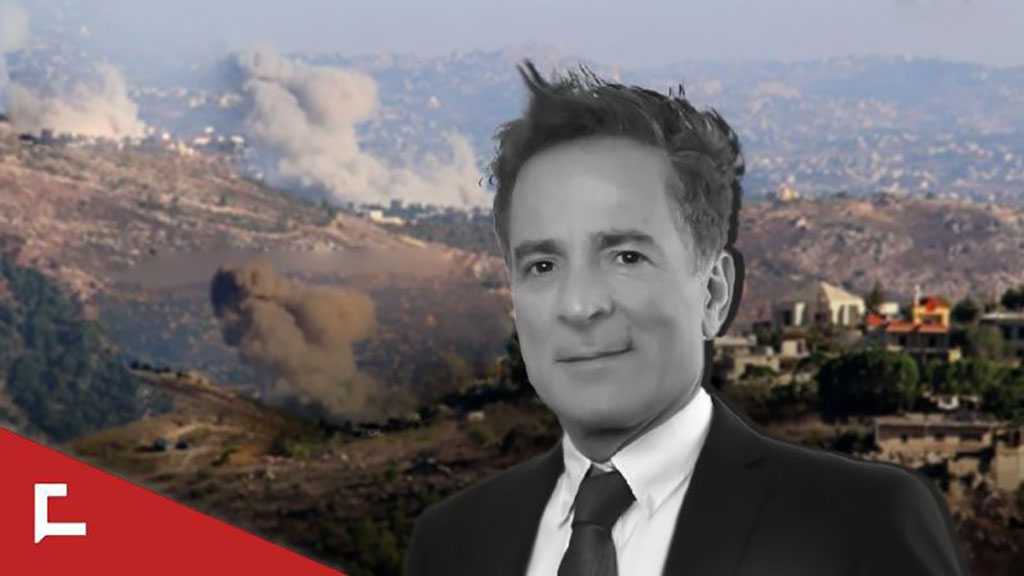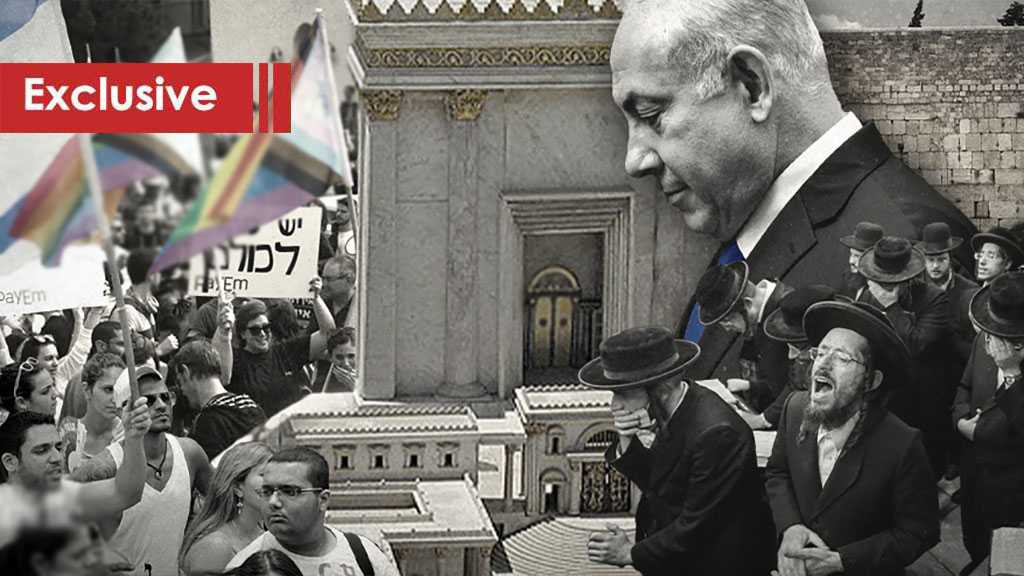
Zasypkin: Any Strike on the Syria Inadmissible
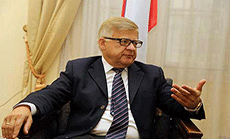
Fatima Salemeh
Russia occupies a salient place in the international community. The strong impact of Moscow's decisions on the international level is no secret. The veto right it enjoys at the UN Security Council allows it to strongly face the US schemes and plots. Russia's Ambassador to Lebanon, Alexander Zasypkin, accosts the regional and international dossiers from Moscow's advanced position in the world.
The envoy sees that the international coalition to fight ISIL is nothing but violation of Damascus sovereignty. According to him, forming the coalition without the umbrella of the United Nations is violation of international legitimacy. He does not rule out other unannounced goals. In his opinion, the countries that have backed terrorism are the same ones partaking in this coalition, which casts doubt on its credibility.
Locally, the diplomat finds no excuses for claims alleging that ISIL wouldn't be in Lebanon if Hizbullah did not fought in Syria. To him, this is an erroneous hypothesis, for Hizbullah's intervention lines with the legitimate regime.
On Ukraine, the Russian Ambassador underlines that Kiev is a tool in the hands of the US and that the US is behind the crisis in order to target Russia, lest it would grow bigger in the world.
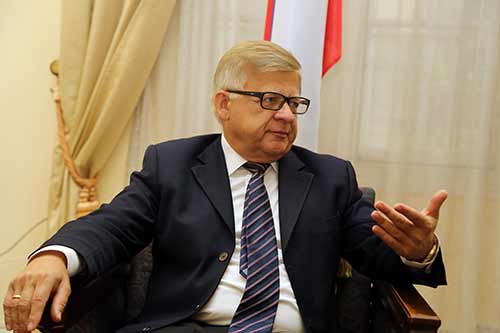
The security equation in Lebanon has been recently shaken. What are your expectations for the future of security in this country?
Security in Lebanon is correlated to the security in the region. For the past years, a state of conflicts swept too many Arab countries. At the same time, the position of the international community is known pertaining to supporting stability in Lebanon, and Russia shares the same stance. In my opinion, there is always a chance for Lebanon to overcome difficult times away from the reverberations of the surrounding crises.
The shaky security situation has placed the Lebanese army and security forces before huge responsibilities. To what extent is Russia ready to offer military aid to Lebanon? What are the weapons it would grant?
The content of negotiations between the Lebanese and Russian parties was determined. This matter is now being mulled by experts and negotiations are underway to offer Russian military equipments to the army and the security forces. Russia has made the political decision to back Lebanon on the military level since a while and the decision has been recently confirmed. What is required now is to agree on details.
Have you updated Interior Minister Nohad Mashnouq on this during his visit to Russia?
Yes, I have. The visit was successful. The Lebanese Minister held important meetings with Russian officials. We expect continuous negotiations in that respect with a Lebanese army delegation that will visit Russia soon. We hope for definitive results during the next round of talks in the coming days.
Turning to Syria, Washington has formed a coalition to fight ISIL but excluded Russia. Some consider that this is a loss for Russia. What do you say about that?
Fighting terrorism must take place within the framework of the United Nations. This is what Russia has always called for. But when the initiative is unilateral, and when the group excludes some concerned sides, this will lead to making decisions that do not comply with the international community. The experience in the past years has proven that the campaigns leveled in the Middle East under different mottos mostly aimed to topple the legitimate regimes like what happened in Iraq and Libya, in addition to the attempts to do so in Syria. Therefore, we expect others goals under the label of fighting terrorism.
So, according to you, the coalition's action is violation of Syria's sovereignty.
We always cleave to the UN Charter which states that any military action must be coordinated with the legitimate authorities in the country and that the Security Council must be notified about it. And now we rely on this principle. Therefore, we insist on the coordination between the coalition and Syria. It is mandatory to hear the viewpoint of the Syrian government before anything else. Our exclusion from this coalition is not a loss at all.
There are information in newspapers saying that the advance made by the Syrian army owes to the quality of weapons provided by Russia to Damascus. What's the magnitude of Russia's support to Syria?
I can't discuss the details and the quality of weapons, but Russia is cooperating with Syria in the military field in compliance with the international legitimacy.
There is talk now about an imminent strike on the Syrian regime. In that case, how will Russia respond?
Answering this question is not within the scope of my competences. The strike is an unacceptable matter. Anyhow, we are in constant contact with the Syrian command and this is the basis to crystalize the Russian position in the future.
There is talk now about establishing a buffer line for Syria along the borders with its neighbors. Will you accept this?
This is an unacceptable matter and we consider it a violation of Syria's sovereignty and its territorial integrity. We firmly stand against it.
Turning to the international coalition, do you think that the airstrikes it is staging are enough to stamp ISIL danger out of the region?
Russia hopes that any announced effort to fight terrorism would bear fruit. But we have doubts concerning the efficiency and the results of the strikes, as well as their reverberation on the situation in the region.
You mentioned that some countries' joining the coalition made it suspicious. Did you mean that there are countries that had backed and funded terrorism?
It is clear for the entire world that some parties to the coalition, including the side behind the idea, have been backing the Syrian oppositionist armed groups for the past period. We consider that all the factions fighting the army are illegitimate. Whoever sees themselves today as independent will find themselves tomorrow beside ISIL. These groups might have different positions on the level of their dogmas, but in the end, they are all fighting the regime. This is why we see that there is a strategic mistake in supporting the moderate factions. Some consider that this way is a means to fight terrorism. But this is wrong because any group that considers itself as moderate today is tilting towards extremism. The right way would be through collaborating with the regime against the terrorist groups.
Lately, it seemed that the danger of ISIL surpassed Syria and Iraq and reached the West. What do you think?
Once again, I reiterate that the issue is not just related to ISIL but to terrorism. This has become a long story. In the future, we may find new names for other extremist groups. Hence, the epidemic and its origins must be fought and a comprehensive strategy, including the political aspects, must be implemented.
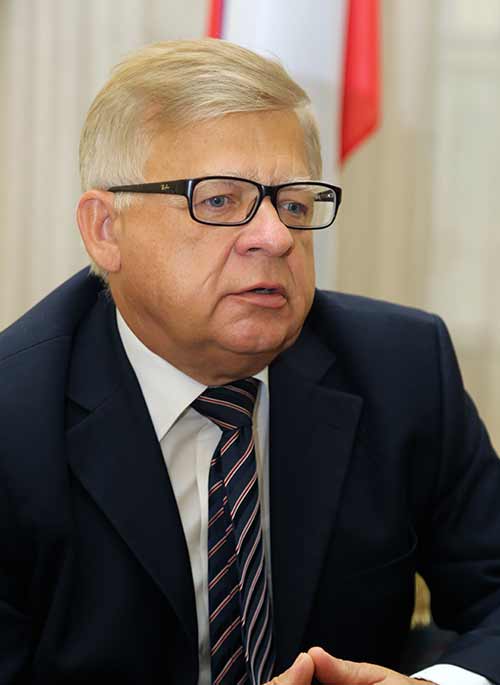
What are the reasons [of terrorism] in your opinion?
For instance, throughout 70 years, the international community could not solve the Arab-"Israeli" conflict. This conflict sows despair among people. One of the reasons behind the spread of terrorism is a sabotaging act against the legitimate authorities by some outsiders in order to take advantage of the internal quandary in countries.
Do you that ISIL would reach Russia? What are your measures in that respect?
There have been tides of terrorism since tens of years. This is not the first time for us. For instance, in the 1990's, we had terrorist acts on the Russian territories. We managed then to quench the major problem. This is why we know well how dangerous it is.
And, when events began in the name of the so-called Arab Spring in the Middle East, we were the first to point out to the risk that the popular movement and the demos would turn into assemblages to energize the terrorist movements. As to the future, we are confident of the unity of the Russian people and we do not fear terrorist tides on Moscow's lands. But we seek international cohesion in the project of fighting terrorism.
Pertaining to fighting terrorism, some find that Hizbullah's participation in Syria's battles a mistake. How do you evaluate this opinion?
When events began in Syria, we saw the transit of fighters and the influx of the terrorist groups that fought the regime. Their weapons crossed the Lebanese territories. We called to stop that infiltration even though the Lebanese authorities made huge efforts to prevent that. It is no secret that more than 80 countries are fighting in Syria. Amid all this, Hizbullah's intervention was a response to the intervention of the armed factions. It is to note that Hizbullah interfered alongside the legitimate regime. Some say that if Hizbullah did not fight in Syria, ISIL wouldn't have been in Lebanon. This is an erroneous hypothesis.
On the Ukrainian dossier, there was a ceasefire but then things flared up again. Kiev accuses you of hindering the security stability in the country. What is your viewpoint?
The Ukrainian authorities are a tool in the hand of America which is staging an orchestrated attack against Russia. This attack includes all political, military, and cultural levels. We place this in the context of the conflict on the future of mankind and the quality of the international system that will prevail. The problem lies in our seeking to establish a system of pluralism and broad partnership, and we believe that this is the best system to replace the unilateral one which after the Cold War took over. But apparently, Washington does not want pluralism. In response to the increasing political weigh of Russia within the international community, Washington prepared an attack on Moscow, which has affected the overall international ties, including in the Middle East, because we were working together with Washington to reach a settlement in Syria through a peaceful process. But America opened a front against us in Ukraine through the putsch and through encouraging the national radical forces that show animosity to Russia. Therefore, Russia's doubts on the anti-terrorism coalition are increasing because at the time when they announce war on terrorism in the Middle East, they are encouraging the fascists in central Europe. This contradiction begot incredibility.
It is said that Iran's parleys with the P5+1 are kind of stumbling. What are your information?
Negotiations are taking place as per the agreement reached last year. There is a clear program and it includes the technical aspects. Politically, we have lately determined the goals by confirming the peaceful aspect of the nuclear program and Iran's right to develop its nuclear program. Negotiations are positive. What matters is to come out with balanced, unswerving, and undoubted agreements.
